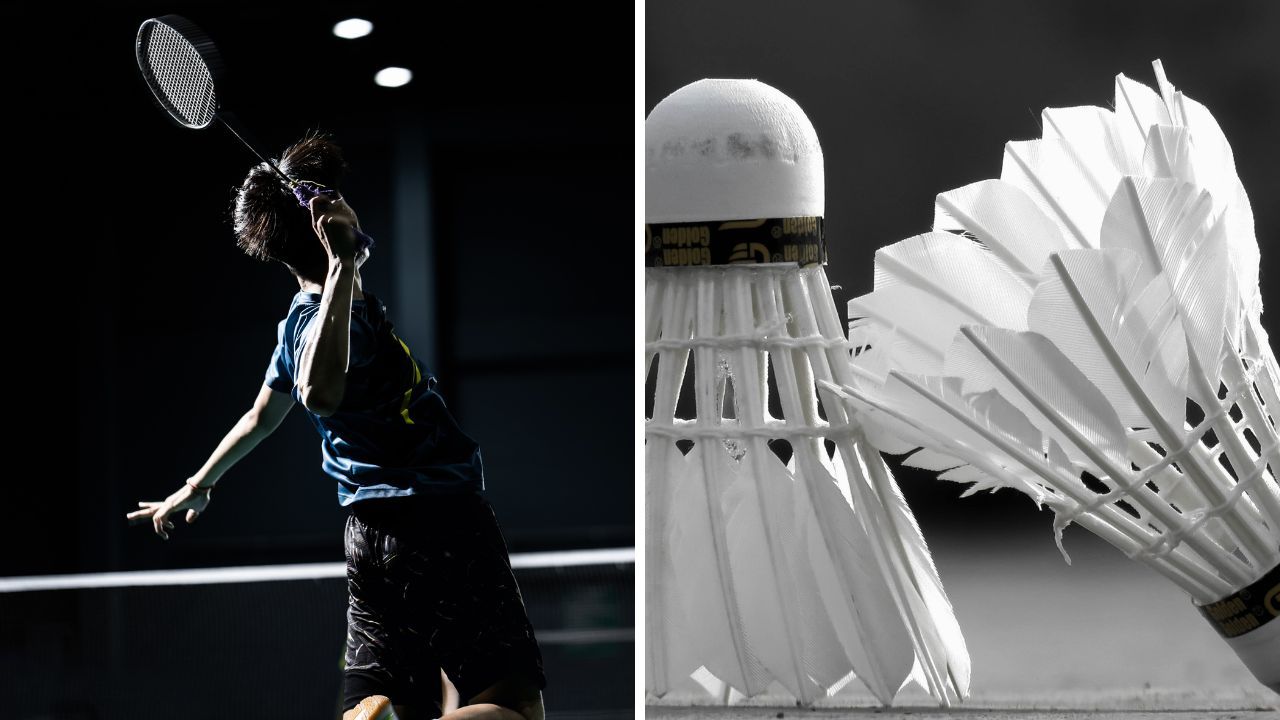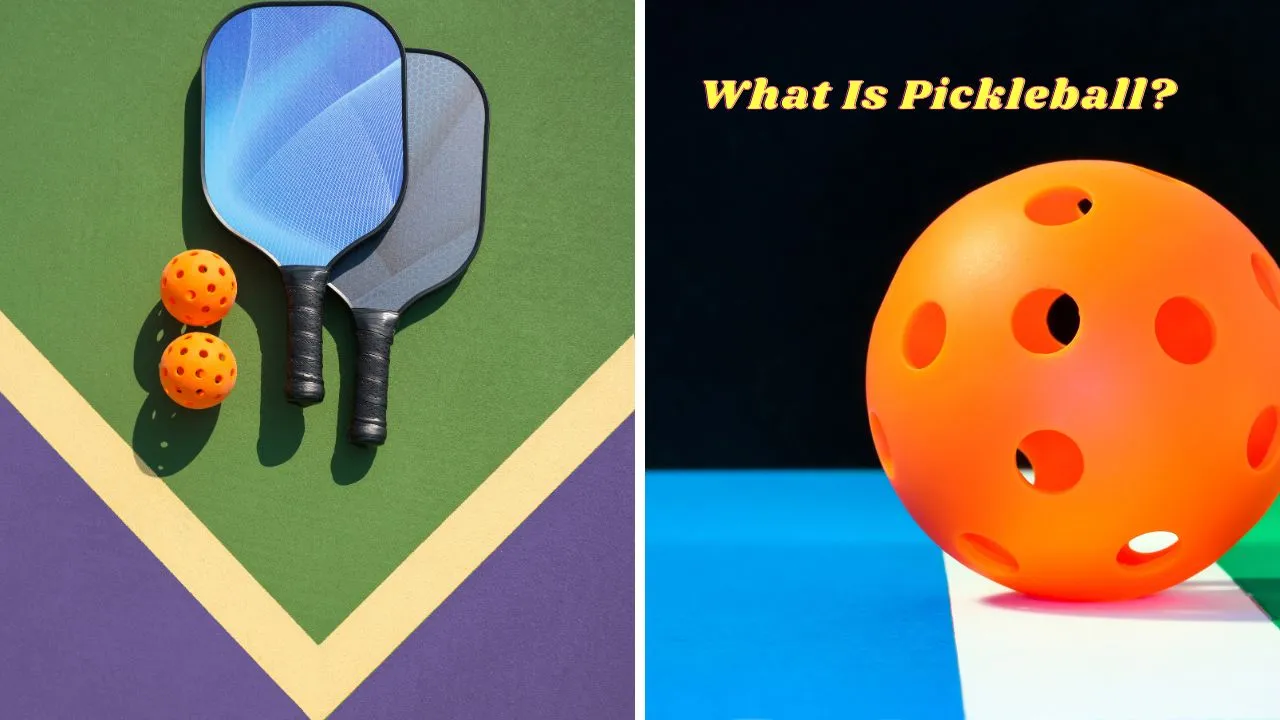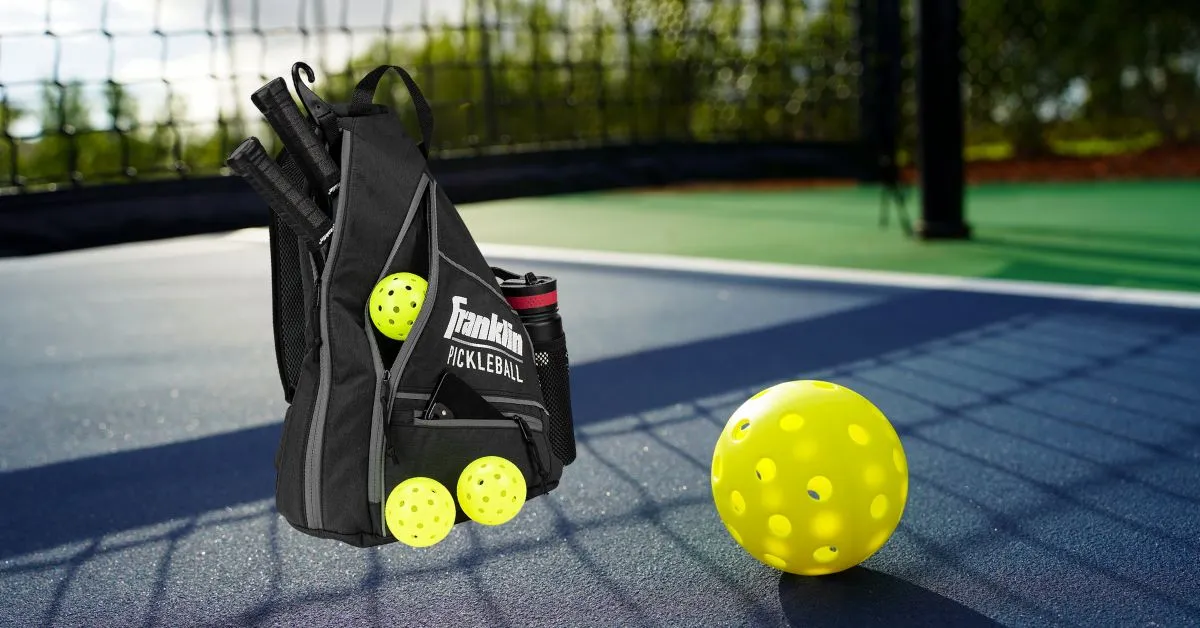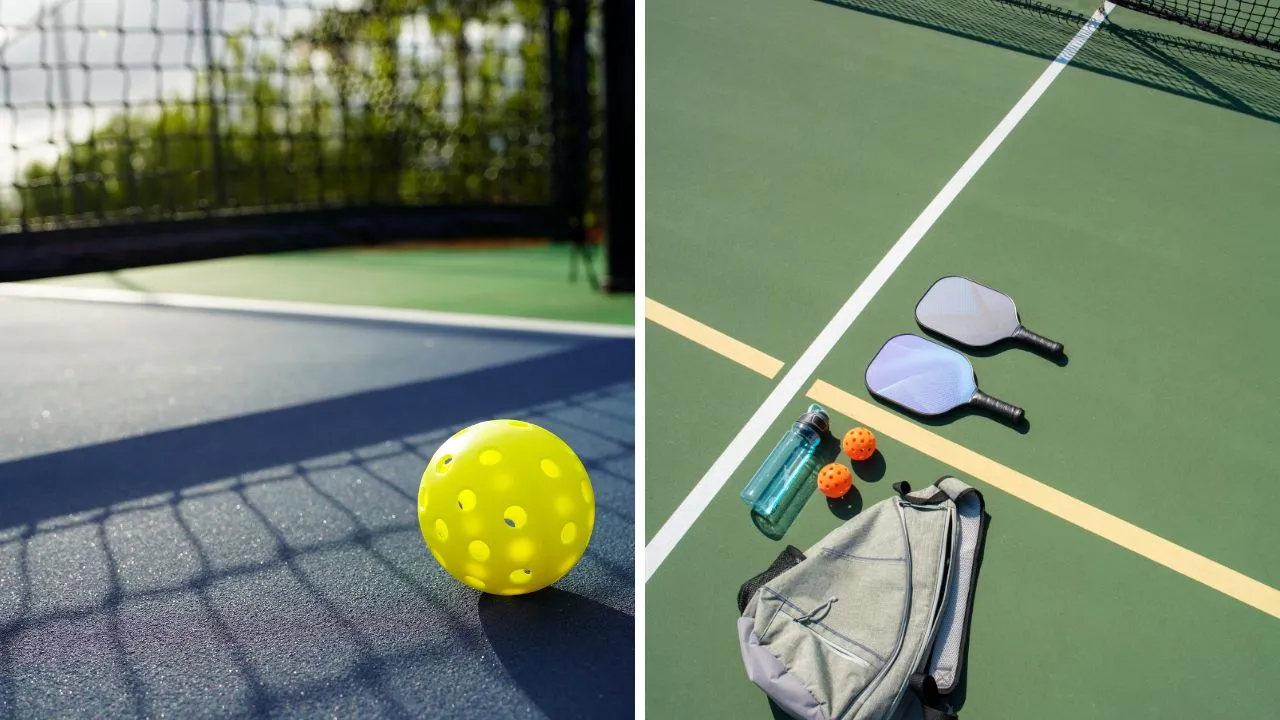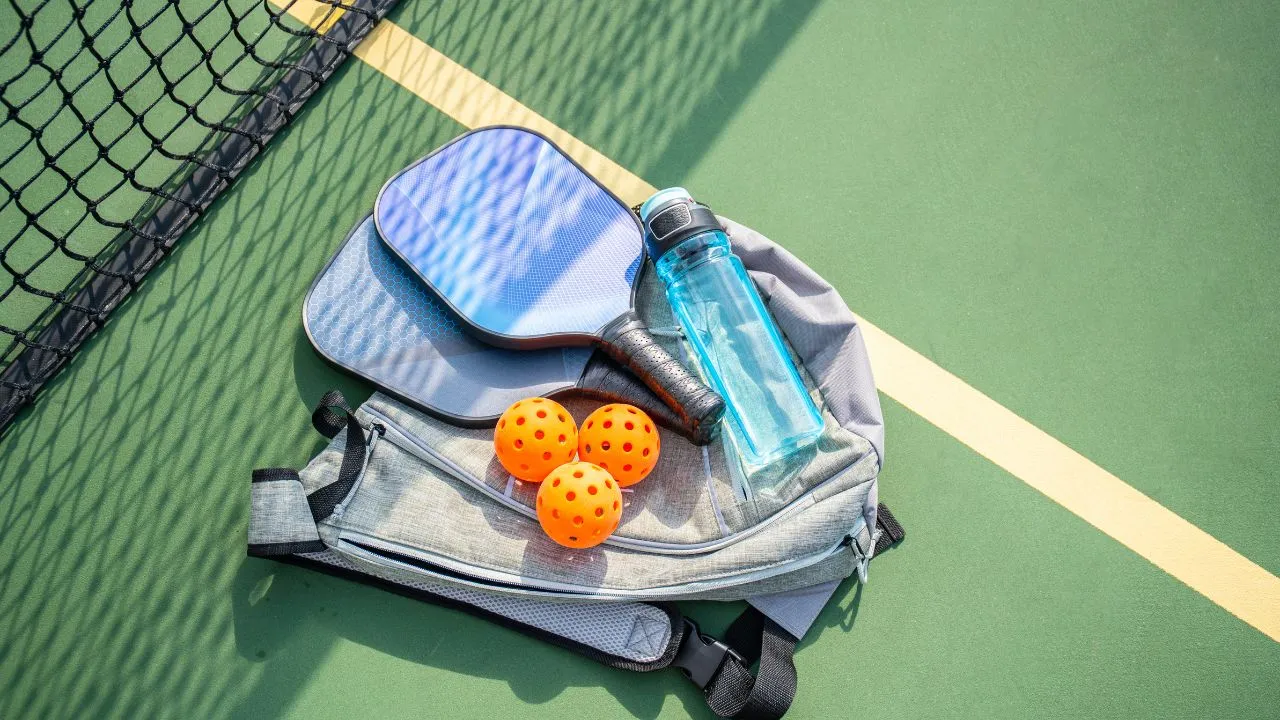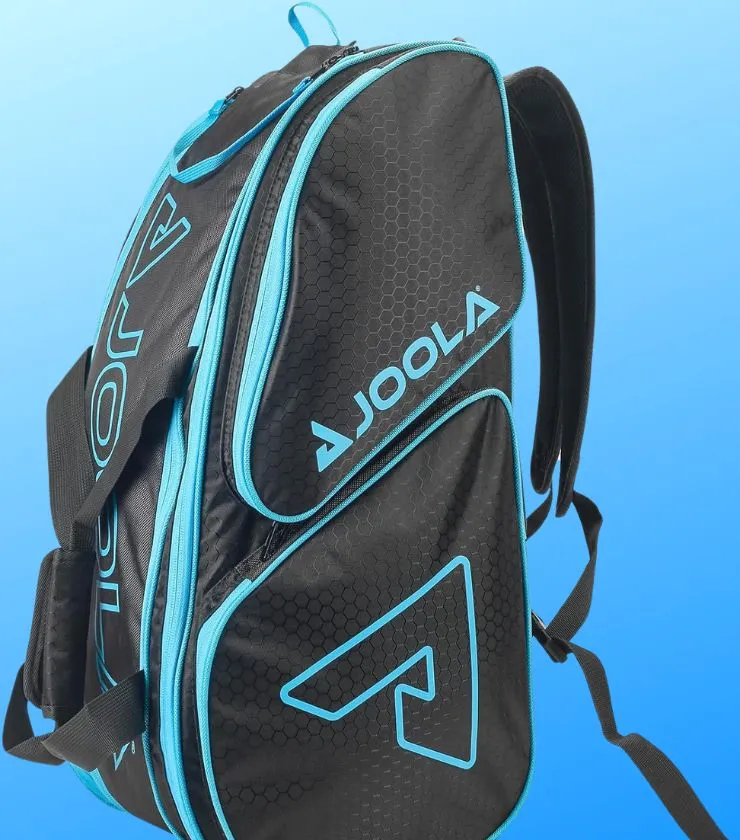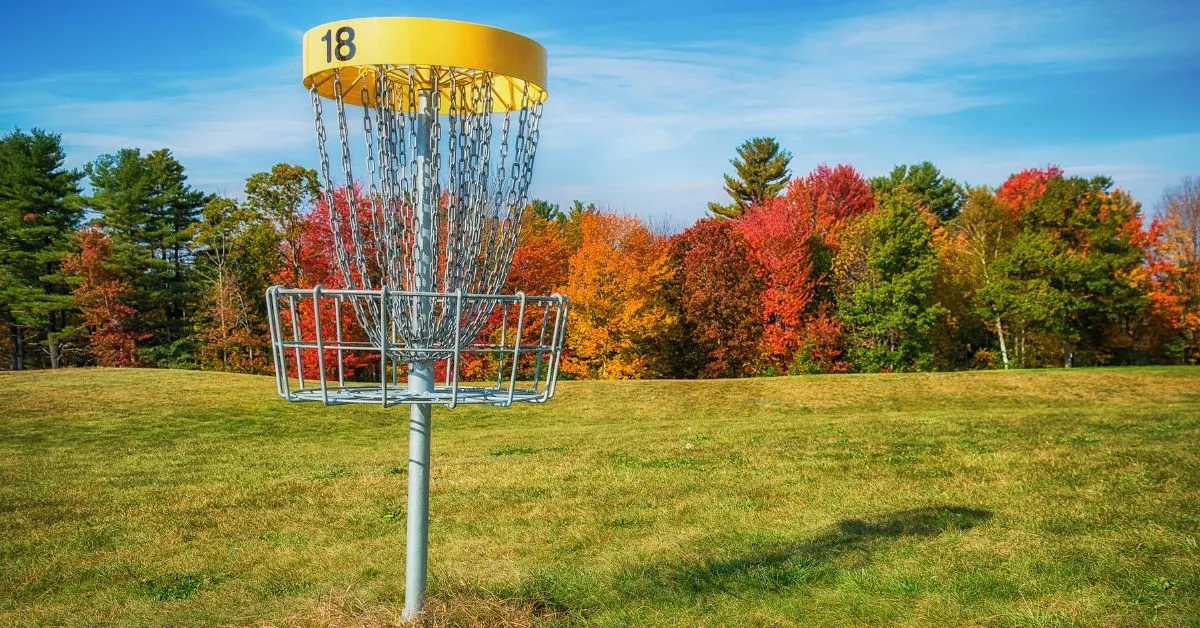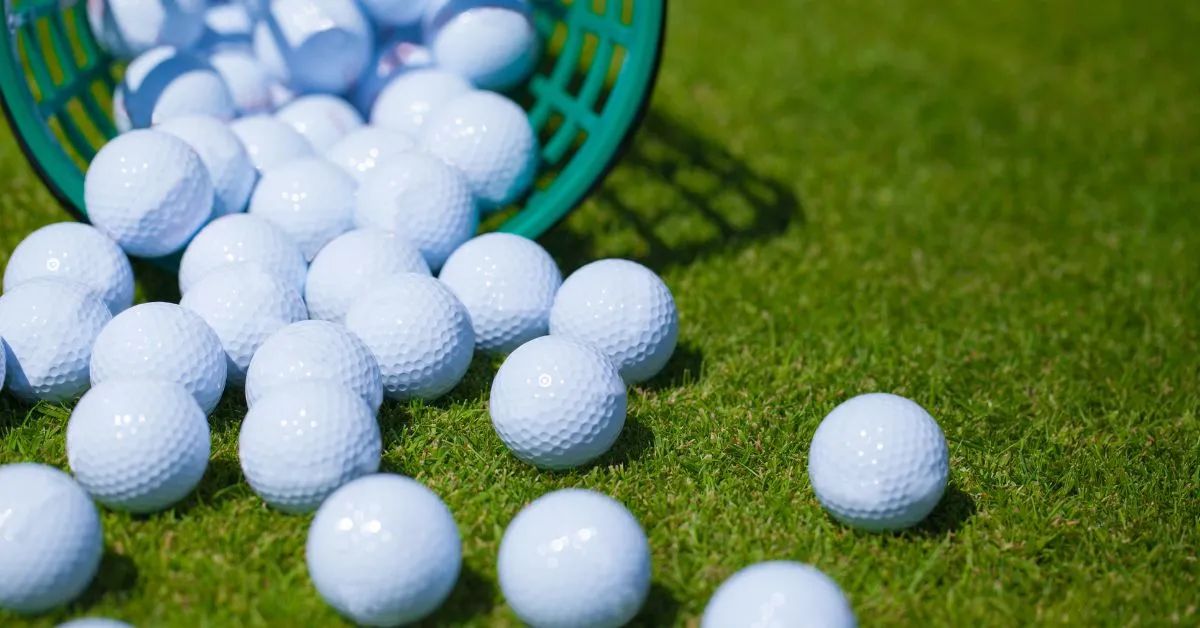Table of Contents
Have you ever wondered, what is pickleball? Or maybe why it's called pickleball? This exciting and rapidly growing sport has captured the hearts of millions worldwide. In this comprehensive guide, we will explore the history, rules, equipment, health benefits, strategies, and how you can find places to play this incredible game. So let's dive in and uncover the world of pickleball!
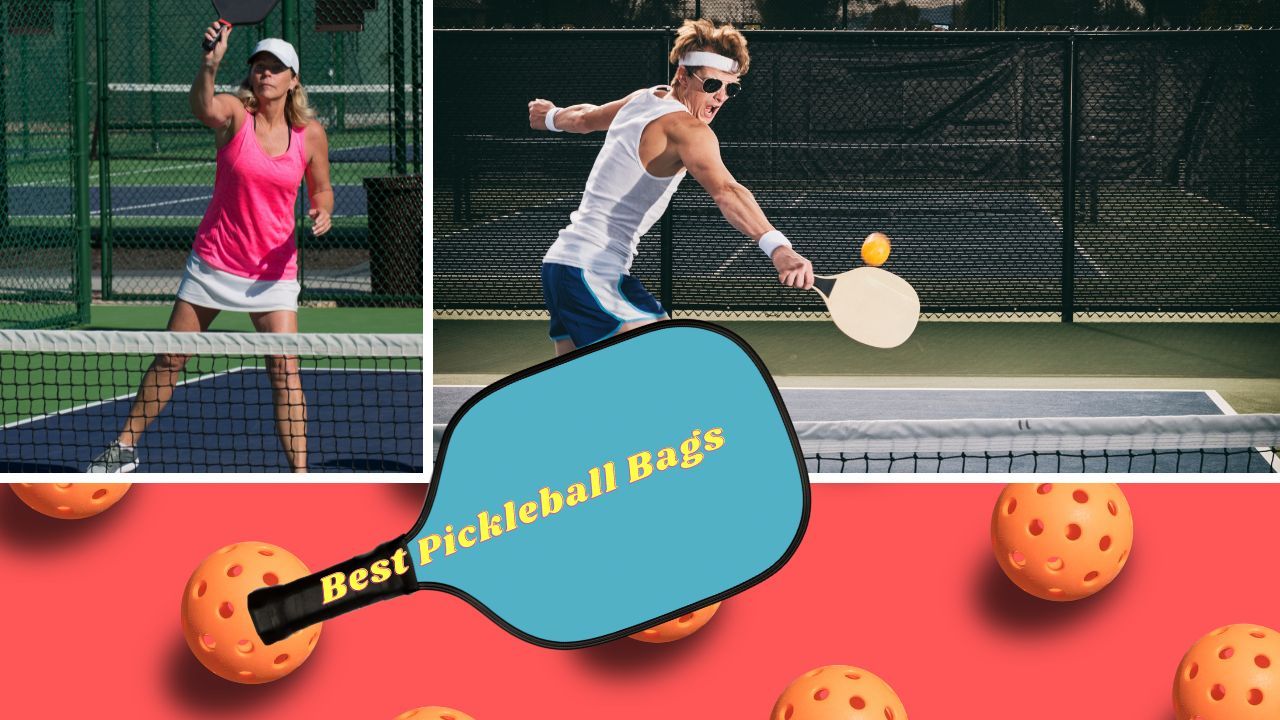
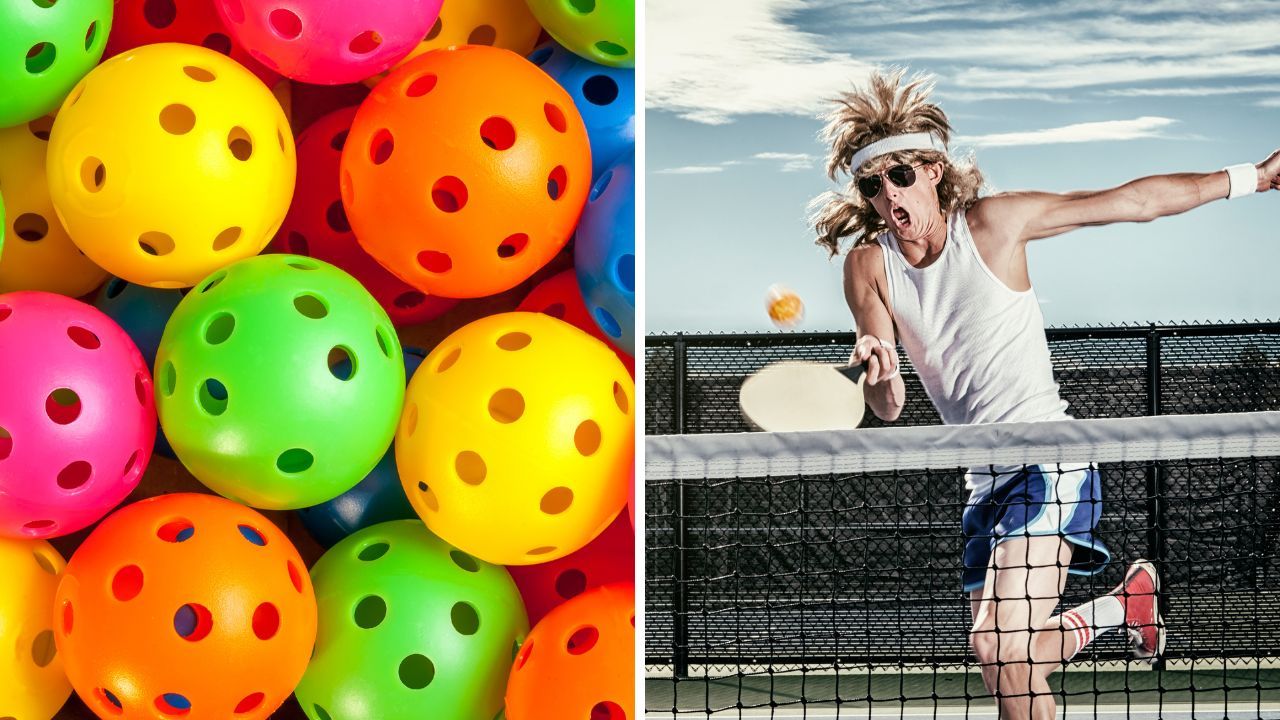
In A Nutshell
- Pickleball is a sport that people of all ages can play. It has parts from ping-pong, badminton, and tennis.
- Essential equipment includes paddles, balls, and comfortable shoes.
- Rules include serving underhanded below waist level with the server's feet behind the baseline & playing to 11 points with a two-point advantage.
- According to the Sports and Fitness Industry Association, it's the fastest-growing sport in America.
The Origin and Evolution of Pickleball
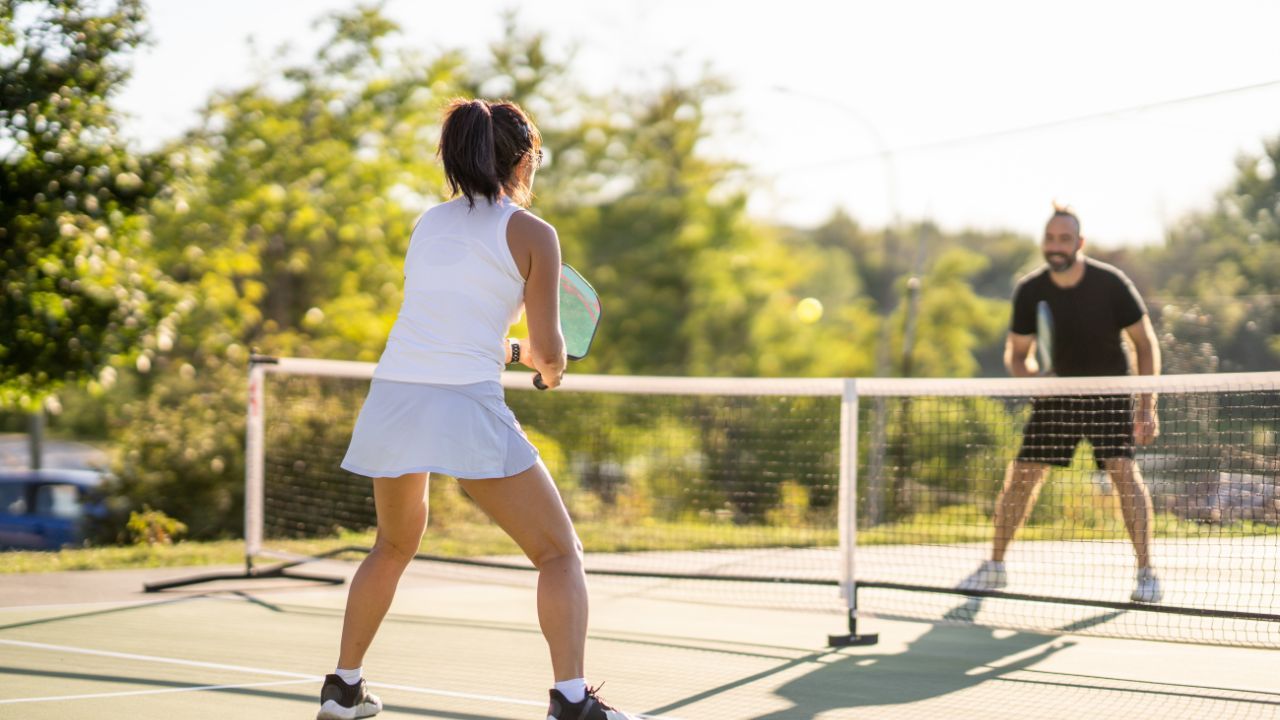
Pickleball is a fascinating sport with an equally intriguing origin story. Invented in 1965 on Bainbridge Island, Washington, by Joel Pritchard, Bill Bell, and Barney McCallum, this game was initially designed to keep their kids entertained during a rainy summer day. Little did they know that their creation would soon evolve into one of the fastest-growing sports in the world, combining elements of tennis, badminton, and ping-pong into a unique and accessible game for players of all skill levels.
Pickleball is easy to learn and can be played on any court surface, making it a great option for people of all ages and abilities.
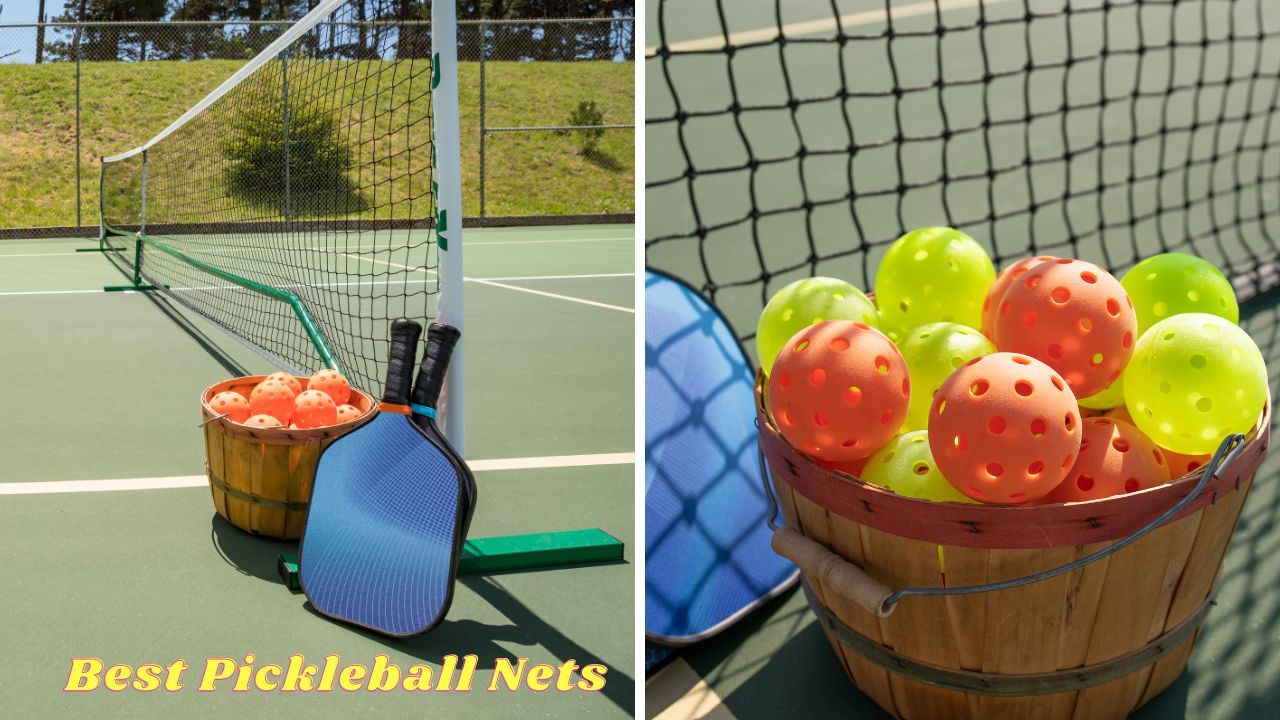
The Birth of Pickleball
The first pickleball court was set up on Bainbridge Island, using a badminton-sized court and a modified whiffle ball. Pritchard, Bell, and McCallum improvised with ping-pong paddles and a badminton net, creating a game that required less running and hand-eye coordination than traditional racket sports. The sport's name is believed to have originated from the Pritchard family's dog, Pickles, who had a penchant for chasing after the ball and running away with it.
As more and more people were introduced to the sport, its popularity began to soar. By 1984, the USA Pickleball Association (USAPA) had been established to govern the game. Today, pickleball is played across all 50 states in the US and in over 40 countries worldwide, demonstrating its wide appeal and rapid expansion.

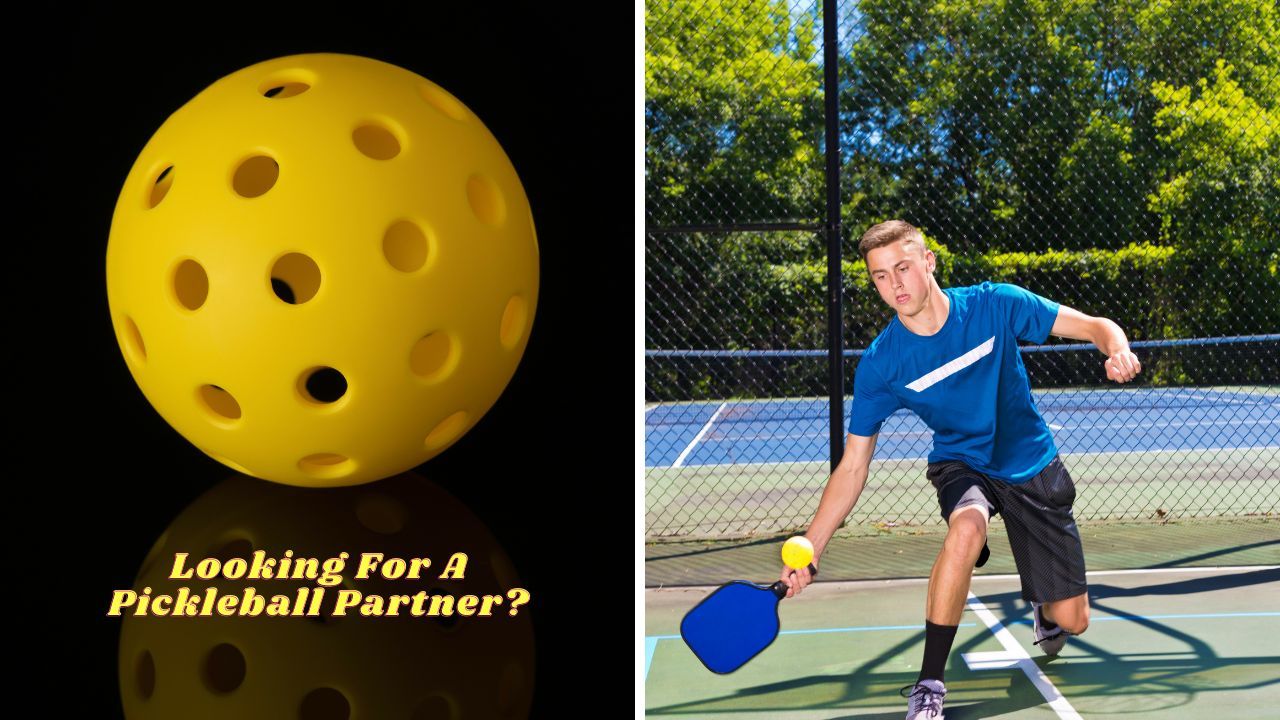
Pickleball's Rapid Expansion
So why has pickleball become such a popular sport? One reason is its accessibility. With a unique plastic ball featuring holes, the game is easy to pick up and can be enjoyed by people of all ages and skill levels. Additionally, the sport's growth rate in the US has been an impressive 39.3% over the past two years, making it a popular choice in the fitness industry.
Pickleball's rise in popularity is also attributed to its pandemic-friendly nature, as the sport can be played both indoors and outdoors with minimal contact between players. This multi-generational appeal has allowed pickleball to spread rapidly, with more and more people discovering the fun and excitement of this versatile sport.
Essential Pickleball Equipment
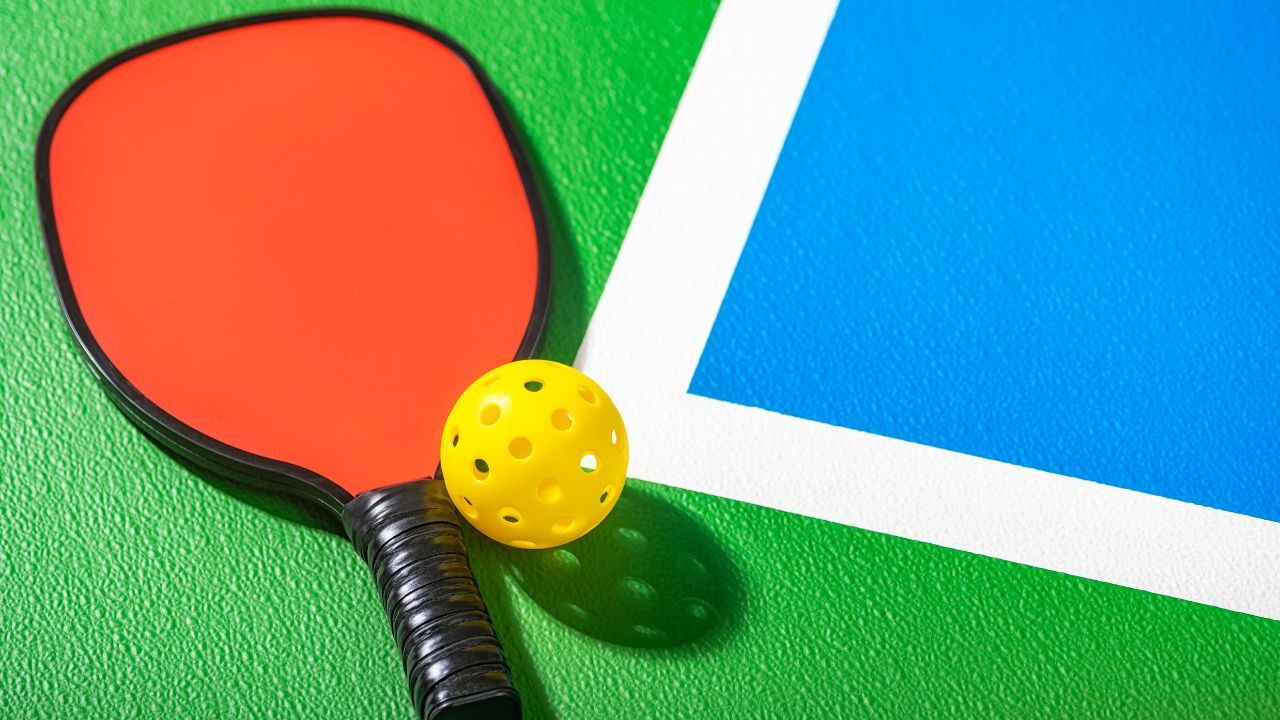
Before you hit the court, it's essential to have the right equipment. To play pickleball, you'll need a paddle, balls, comfortable shoes, and a few friends or a group to join. Paddles can be purchased at sporting goods stores or tried out at some facilities.
Let's take a closer look at the different types of equipment you'll need to enjoy this fantastic game.
Paddles and Their Materials
Pickleball paddles come in various materials, with the most common being graphite, fiberglass, and wood. Graphite paddles are often preferred by experienced players for their lightweight and durable nature. Fiberglass paddles, on the other hand, offer a good balance between weight and resilience, making them a popular choice for beginners and intermediate players.
In terms of size, pickleball paddles must not exceed 17 inches in length. When it comes to footwear, tennis shoes are the optimal choice as they provide a flat base for stability, have non-marking soles to protect the court, and reduce the risk of ankle injuries due to their design, which allows for quick lateral movements.
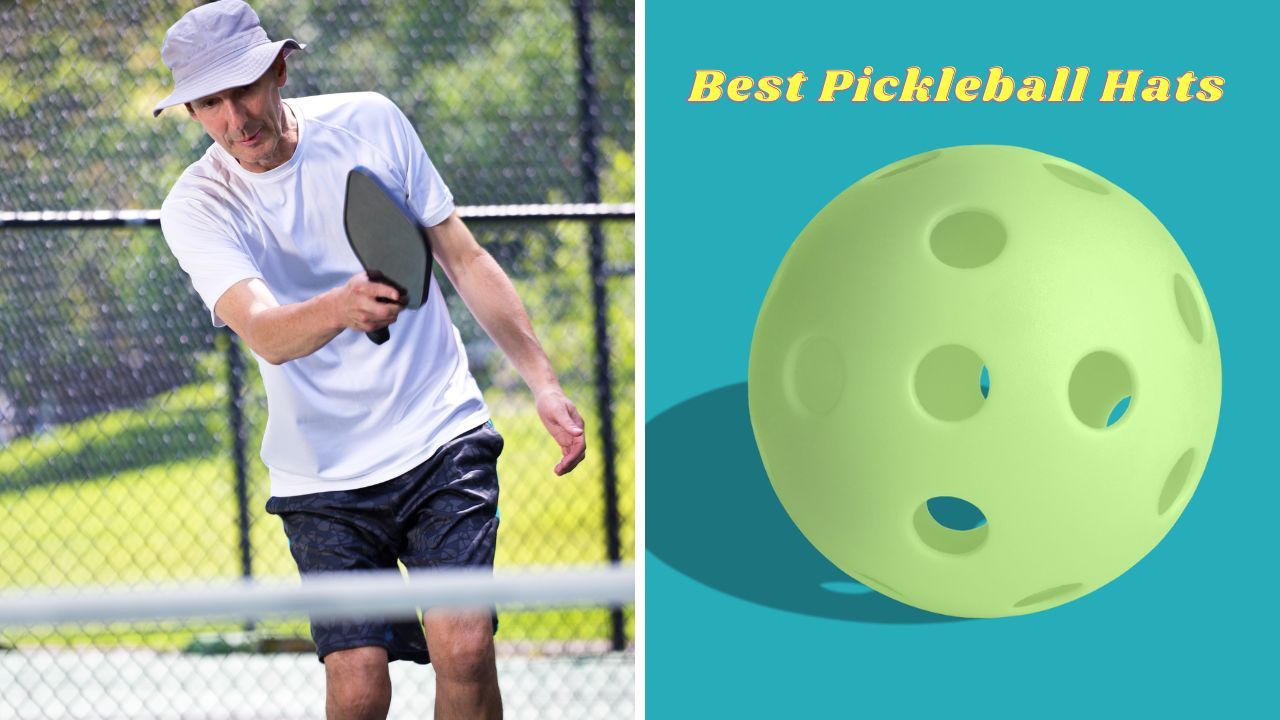
Pickleball Balls Explained
There are two types of pickleball balls: indoor and outdoor. Indoor balls are designed to be slightly lighter and made with thinner plastic, while outdoor balls are heavier and feature multiple holes. The composition of pickleballs consists of hard plastic with 26 to 40 holes, which helps the ball travel through the air during gameplay.
The main difference between indoor and outdoor pickleballs lies in their weight, hardness, and hole size. Outdoor balls are more dense than indoor ones. This is because they are heavier, harder, and have smaller holes. As a result, they move faster than indoor balls. This distinction is essential to consider when selecting the right ball for your playing environment.
Court Setup and Dimensions
Pickleball is played on a court measuring 20 feet wide by 44 feet long for both singles and doubles games, as regulated by the International Federation of Pickleball (IFP). The court size is smaller than that of a tennis court, which makes the game more accessible and less strenuous on players' joints.
One of the unique features of a pickleball court is the no-volley zone, also known as the "kitchen." This area extends 7 feet from the net on both sides and is where volleying or hitting the ball out of the air is not allowed.
Understanding the court setup and dimensions is crucial for mastering the game's rules and strategies.
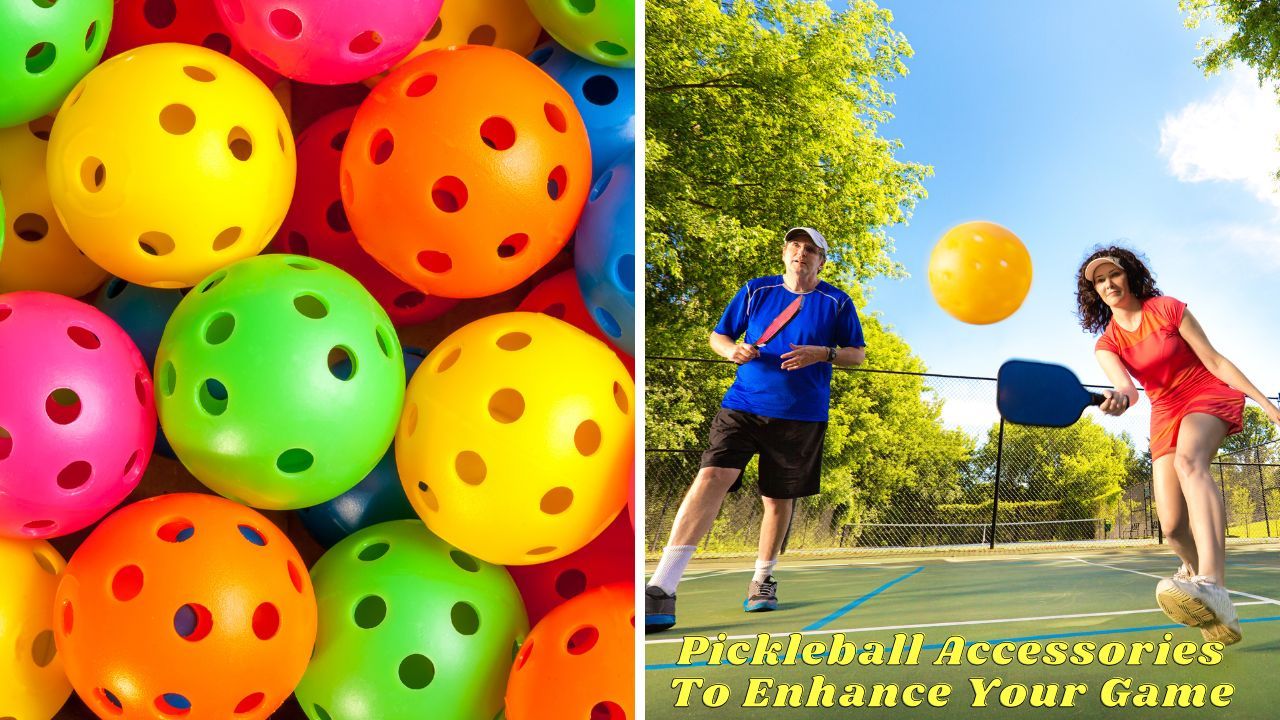
Playing Pickleball: Rules and Gameplay
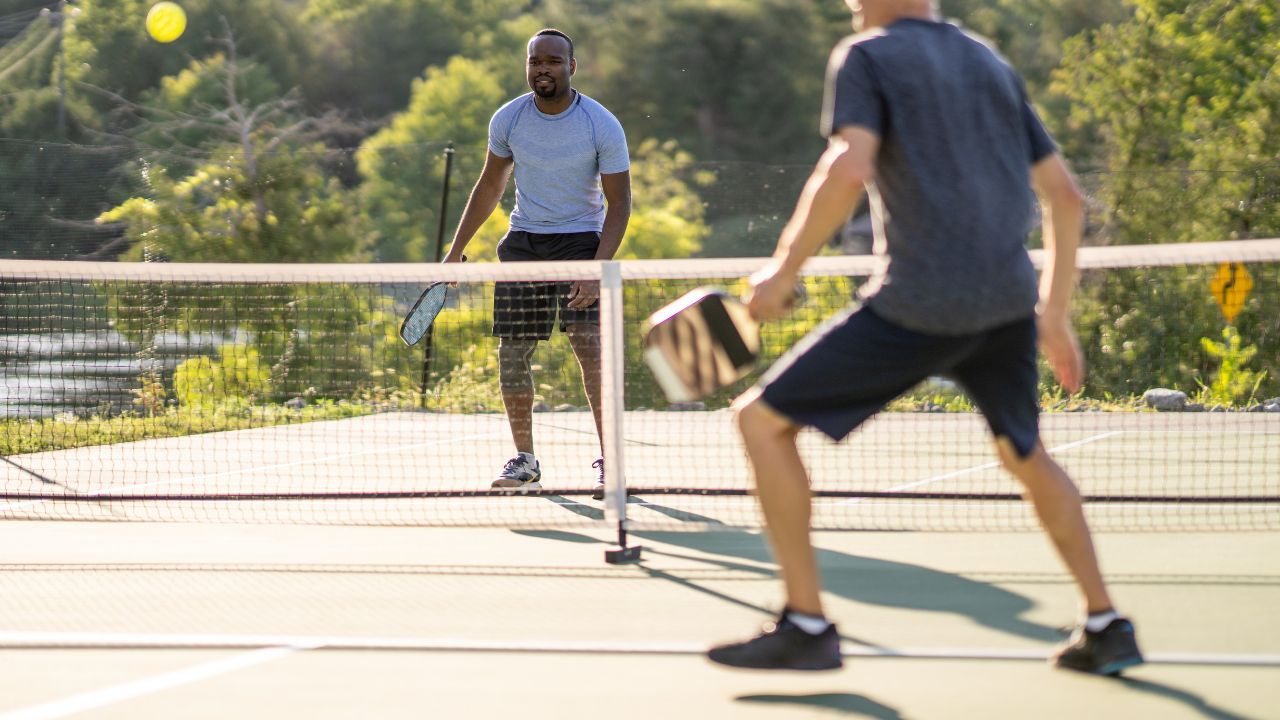
The USAPA maintains and updates the official rules of pickleball, with a downloadable rulebook and clarifications available on their website. Games are played to 11 points, with the winning team needing a two-point advantage to secure victory.
Points are awarded after a rally to the serving team, making strategic plays an essential aspect of the game.
Serving in Pickleball
Serving in pickleball is unique compared to other racket sports. Players must serve underhandedly, with the ball traveling diagonally into the opposing player's service court. The server's feet must be behind the baseline during the serve, and the ball must be struck below the waist level. The proper serving technique is crucial for gaining an advantage in the game and scoring points.
The no-volley zone, or "kitchen," plays a significant role in the pickleball serving strategy. Players are not allowed to volley the ball (hit it out of the air) while standing within this 7-foot zone on either side of the net. Mastering the art of serving to keep your opponents out of the kitchen while positioning yourself for a strong return is a critical aspect of the game.

Scoring System
Points can only be awarded to the serving team when playing pickleball. This encourages tactical play and keeps games competitive. The first team to reach 11 points with a two-point advantage wins the game. The scores in a doubles match are called out with three numbers. The first two summarize the serving team's and the receiving team's scores respectively. The third number indicates which server it is, either one or two. Understanding the scoring system is vital for keeping track of the game's progress and determining when to employ specific strategies.
Rally scoring, where points are awarded to both teams after each rally, is another form of scoring in pickleball. This scoring method can make games more fast-paced and intense, as every rally has the potential to change the game's outcome.
Player Rotations and Formats
Pickleball offers a variety of player rotations and formats to cater to different skill levels and preferences. Players can rotate by placing their paddles in a single line from left to right at each court, indicating the order of play. Games are typically played to 11 points, and various formats like round robins, traditional tournaments, luck-of-the-draws, ladder leagues, and shootouts are suitable for different facilities and player experiences.
Whether you're a beginner looking for a casual game or an experienced player seeking a competitive challenge, pickleball offers a wide range of formats and rotations to suit your needs. This versatility makes the sport even more appealing to a diverse range of players.
Health Benefits and Risks of Pickleball
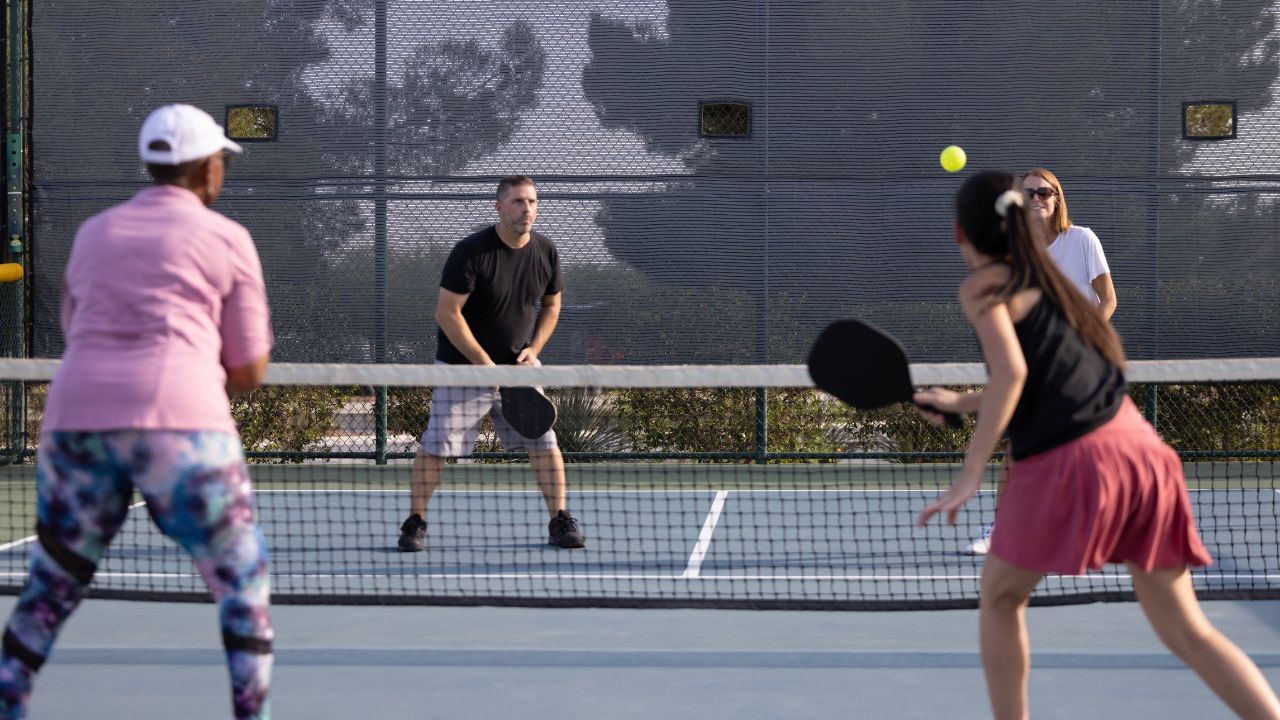
Pickleball isn't just a fun and engaging sport; it also offers numerous health benefits for its players. At the same time, it's essential to be aware of potential risks and injuries associated with the game.
In this section, we will explore the health advantages of playing pickleball, as well as potential risks and tips for minimizing them.
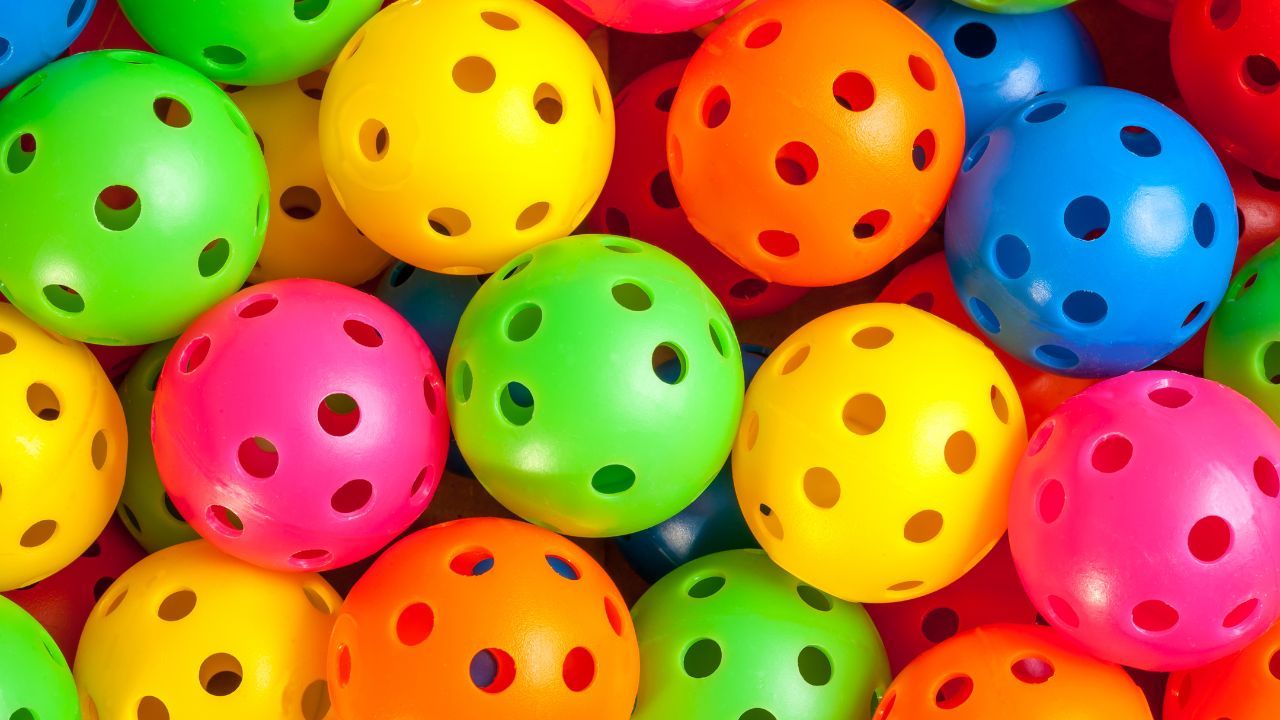
Positive Health Impacts
Playing pickleball can lead to various health benefits, including improved hand-eye coordination, increased agility, and enhanced muscle strength. Regular participation in the sport has also been linked to better cardiorespiratory fitness and cognitive improvements. There have even been notable changes in cholesterol levels among pickleball players, demonstrating the sport's positive impact on overall health.
In addition to these physical benefits, pickleball can also help reduce the risk of depression by promoting social interaction and providing a fun, engaging form of exercise. The sport's low-impact nature makes it an ideal choice for people of all ages and fitness levels, fostering a sense of community and well-being among its players.
Potential Risks and Injuries
While pickleball offers numerous health benefits, it's essential to be aware of the potential risks and injuries associated with playing the sport. Common injuries include falls, strains, sprains, and tendonitis. To minimize these risks, players should warm up before playing, use proper form, and take periodic breaks as needed.
If you experience an injury while playing pickleball, it's crucial to consult a doctor or physical therapist to ensure proper healing and a timely return to the court. By being mindful of potential risks and taking precautions, you can enjoy the many health benefits of pickleball while keeping yourself safe and injury-free.

Pickleball Etiquette and Strategy
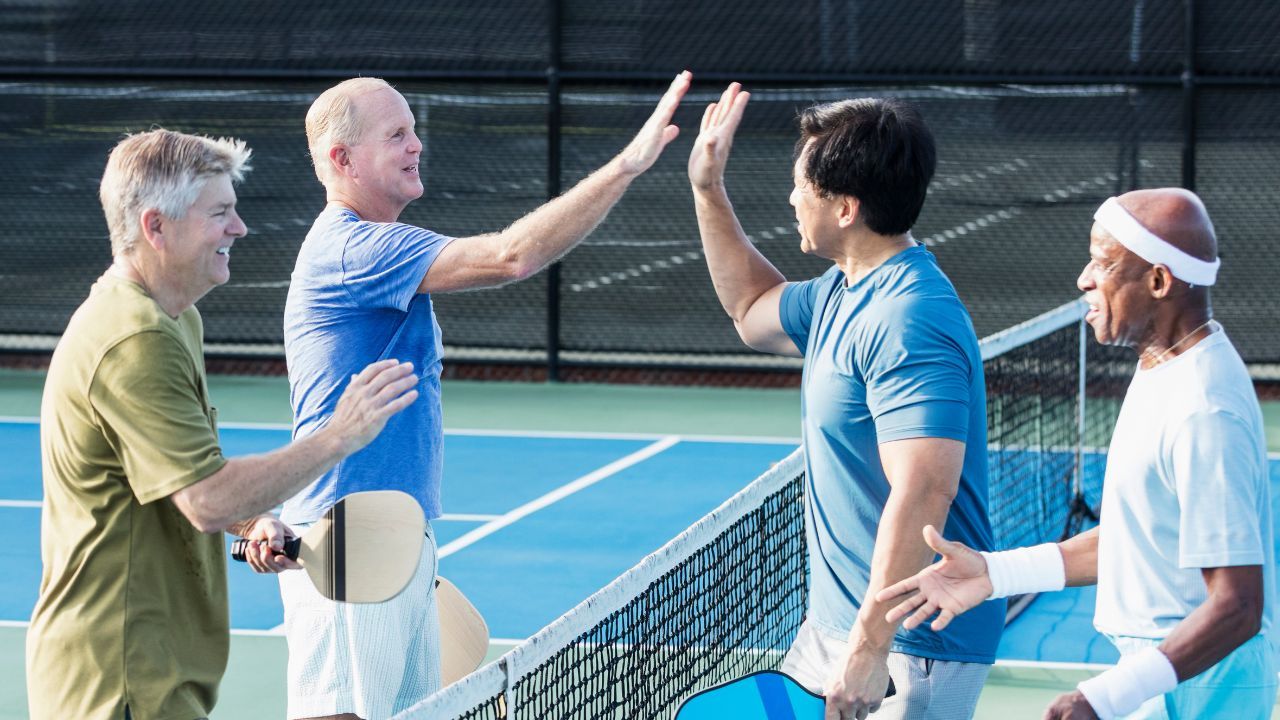
As with any sport, pickleball has its own set of unwritten etiquette rules and strategies that players should follow to ensure a positive playing experience. Whether you're a beginner or an experienced player, understanding and adhering to these guidelines will help you enjoy the game while also fostering a sense of sportsmanship and respect among your fellow players.
Top Etiquette Tips
Etiquette plays a vital role in pickleball, ensuring that all participants, including players, officials, volunteers, staff, and spectators, are treated with courtesy and respect. Some essential etiquette guidelines include introducing yourself to unfamiliar players, refraining from using profanity or obscene gestures and respecting the rules of the game.
Good sportsmanship is also crucial in pickleball. Treat all players, officials, volunteers, staff, and spectators with respect, and always abide by the rules of the game. By following these top etiquette tips, you'll contribute to a positive playing environment and foster a sense of camaraderie among fellow pickleball enthusiasts.
Mastering Pickleball Strategy
Pickleball strategy is an essential aspect of the game, with a focus on positioning, serving, and returning serves. One crucial aspect of pickleball strategy is the no-volley zone (NVZ) line. By effectively utilizing the NVZ line, players can gain an advantage when scoring points.
Another essential strategy in pickleball is returning serves to the kitchen line. This tactic can put pressure on your opponents and create opportunities for scoring points by forcing weak returns.
By focusing on these strategies and refining your skills, you can master the game of pickleball and enjoy a competitive edge over your opponents.

Finding Places to Play Pickleball
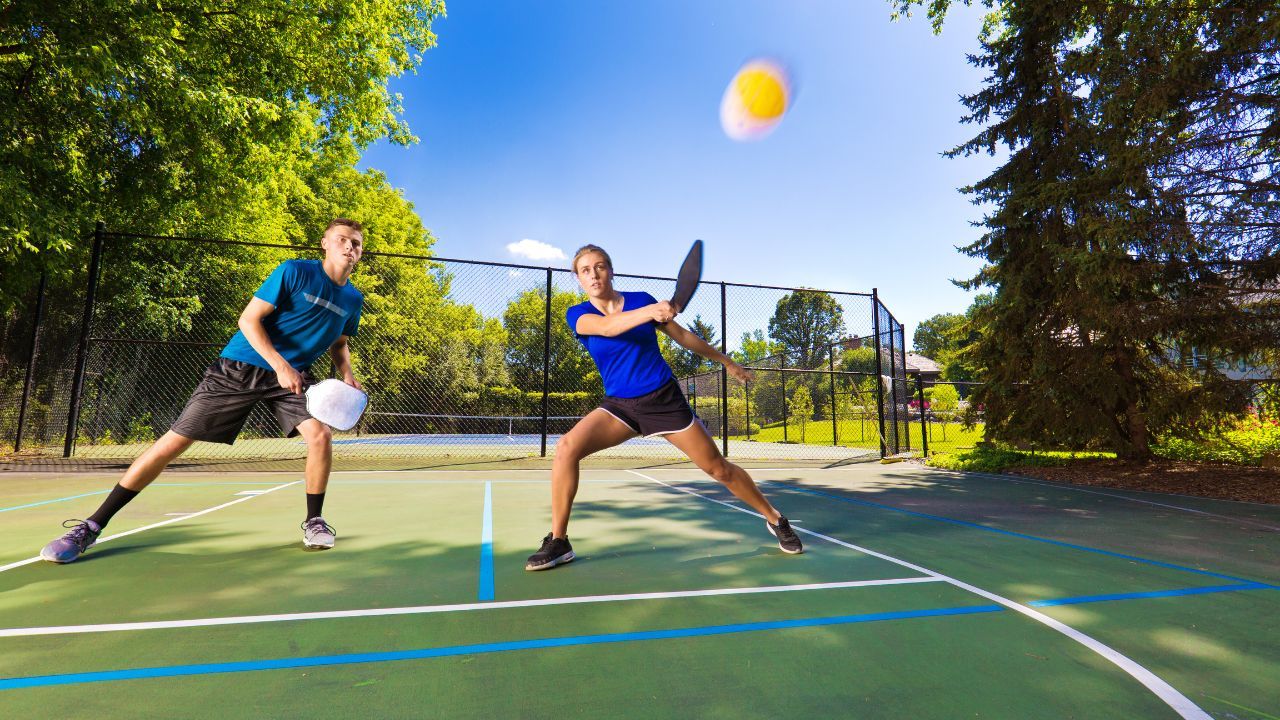
If you're eager to join the growing community of pickleball enthusiasts, you'll need to find places to play. Many recreation centers, YMCAs, and tennis clubs offer pickleball facilities and tennis courts, making it easy to find a location near you. Additionally, you can join local Facebook groups or contact USAPA ambassadors to discover pickleball courts and events in your area.
You can also download Apps that show you places to play such as Places2Play, or Pickleball Play or Pickleball+ app and the USAPA website, which is an invaluable resource for locating pickleball courts in your vicinity. With countless options available, you'll have no trouble finding a place to enjoy this fantastic sport with friends and fellow players.
Summary
In conclusion, pickleball is an engaging, fun, and rapidly growing sport that offers numerous health benefits, an exciting playing experience, and a strong sense of community. With its unique blend of tennis, badminton, and ping-pong elements, pickleball is an accessible game for players of all ages and skill levels. By understanding the rules, etiquette, strategies, and equipment, you can enjoy the many advantages of the sport while minimizing potential risks. So why not grab a paddle, find a court, and join the pickleball revolution today? Let the games begin!
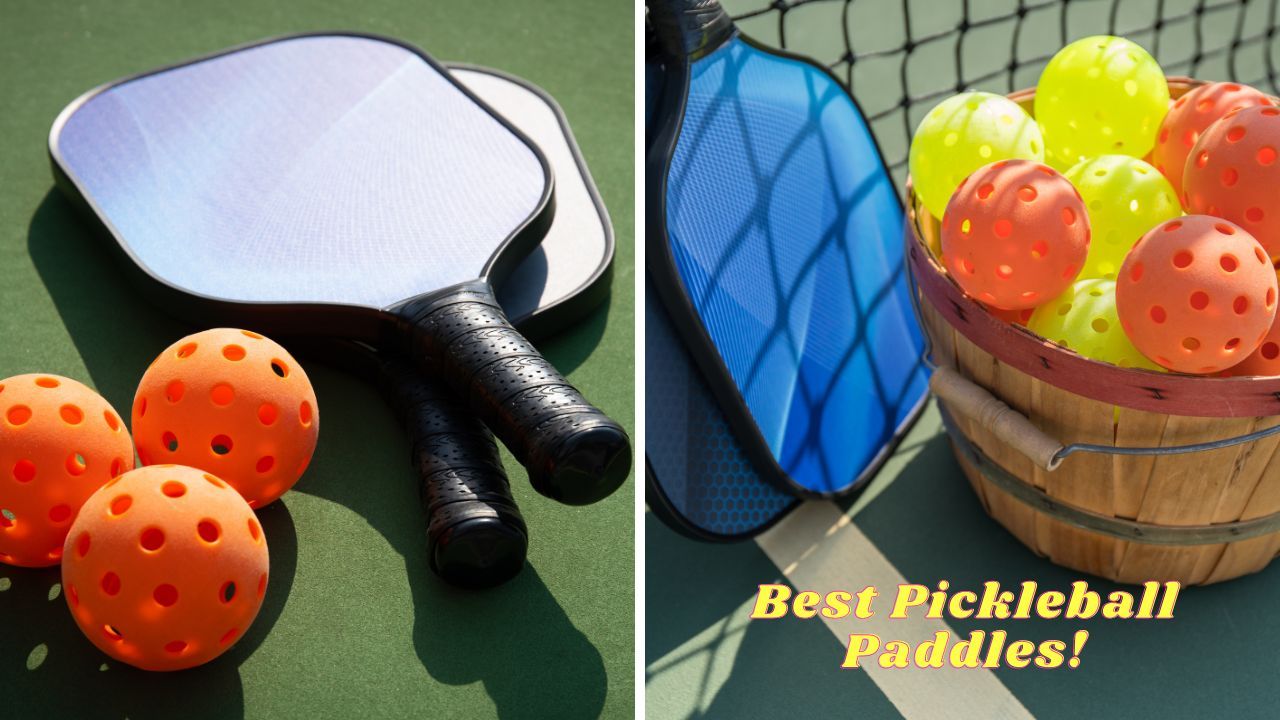
Frequently Asked Questions
What is pickleball and why is it so popular?
Pickleball is a sport you play with paddles. It is easy to learn and combines parts of badminton, tennis, and ping-pong. It is fun to play! It's great for players of all ages and skill levels due to its simple rules and requires only a few pieces of equipment like paddles, a plastic ball with holes, and a net. This is why it has become increasingly popular over the years.
Why do you call it pickleball?
Pickleball is named after the "pickle boat" crew where oarsmen were chosen from the leftovers of other boats. This idea was suggested by Joel Pritchard's wife, Joan, who thought the combination of different sports resembled the pickle boat. The name was adopted and has been used ever since.
Is a Pickleball court the same size as a doubles badminton court?
Yes, both Pickleball and a doubles badminton court have the same dimensions: 20 feet wide by 44 feet long. However, the doubles badminton court and pickleball court layouts and markings differ between the two sports as well as the net and zones.
How do you play pickle balls?
Playing pickleball is easy and fun! You take turns serving the ball and you can only earn points while serving. The first team or player to reach 11 points with a two-point advantage wins the game, or if no one reaches 11 points with a two-point advantage, the team or player with the higher score at the end of the game will win.
What is pickleball and how is it played?
Pickleball is a game that you play with paddles. It is a mix of ping-pong, badminton, and tennis. It is fast and fun! Played on a court similar to that of tennis, two or four players use solid paddles to hit a whiffle ball over a low net. The point is scored when one player is unable to return the ball legally or if the serving team wins the rally.
How do you fit four pickleball courts on a tennis court?
To fit four pickleball courts on a tennis court, position them across the width of the tennis court, two on each side of the tennis net. Each court should measure 20 feet wide by 44 feet long. Mark the boundaries and non-volley zones (7-foot area adjacent to the net) using temporary lines, tape, or chalk. Install portable pickleball nets in the center of each court, ensuring the correct height. Leave some buffer space between the courts for players' safety and comfort. Following these guidelines will allow you to efficiently fit four pickleball courts on a standard tennis court.
With detailed and rigorous research, we provide our readers with the finest recommendations. Our recommendations are our opinions. Our cause is backed by reader support- for every click made through one of our affiliates links, a commission may be earned at no extra expense to you! As an Amazon Associate, Reviewsopedia may earn a commission from qualifying purchases. Thank you and enjoy!
Other Related Articles

